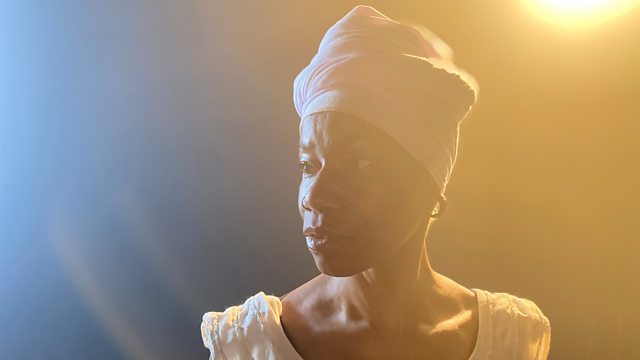
Children of the Caribbean Revolution with Lindsay Johns
In this visual essay, writer and broadcaster Lindsay Johns reframes the history of the Caribbean through the lives of four inspirational revolutionary leaders.
In this high-concept visual essay, writer and broadcaster Lindsay Johns reframes the history of the Caribbean to tell a new story. Not the traditional narrative of suffering and adversity but a celebratory one of superheroes and epic wars, unceasing resistance and never-ending rebellion, told through the stories of four inspirational leaders and their modern-day spiritual descendants.
Each of the four accounts represents a heroic figure, whose life should, arguably, be more widely known and more comprehensively taught. But it is more often the case that such lessons are only found in the kinds of Saturday or supplementary schools established and maintained by the Black community from the 1970s onwards in order to compensate for the partial history their children are taught in British schools. Stories such as that of the Jamaican rebel heroine, Queen Nanny of the Maroons. Born in Ghana in the 17th century and brought to Jamaica as a slave, she escaped into the Blue Mountains and joined the rebel Maroon community, where she rose to become a feared military leader, eventually beating the British into submission by winning autonomy for the Maroons to govern their own areas.
At the end of the 18th and into the 19th century, in what is now present-day Haiti, we meet Toussaint Louverture, the son of a king captured in the West African kingdom of Doheny. He began life as a slave himself but went on to become one of the most learned, loved and celebrated revolutionary leaders the world has ever known, beating the French, Spanish and British, and helping to found the first and only independent state ever to be born of a slave revolt.
Jumping to the 20th century and the former French Caribbean colony of Martinique, where Frantz Fanon was born. We learn about the man who fought with the Free French against the Nazis before qualifying as a psychiatrist and going to Algeria, where he diagnosed the psychological trauma of colonialism and inspired liberation leaders across the world. He fought with the Algerians against their French masters and wrote two landmark books – Black Skin, White Masks and The Wretched of the Earth – as well as surviving multiple assassination attempts before dying of leukaemia in 1961 at the age of 36.
Finally, we learn about Walter Rodney, the Guyanese academic who showed that African freedom fighters and their Caribbean brothers and sisters were really the same people, united by a common struggle. Rodney became a hero of the Pan-African liberation movement before his early death, killed by a bomb in the Guyanese capital Georgetown in 1980 at the age of 38. In exploring these incredible lives, the film takes us on an odyssey through space and time, connecting these revolutionary giants and often neglected figures with ordinary people living today in Britain, one of the most multicultural nations on earth.
Lindsay Johns is a British writer and broadcaster of South African heritage who lives and works in London. He is a frequent contributor to �鶹�� Radio 3 and �鶹�� Radio 4 and is currently a non-residential fellow at the Hutchins Center, Harvard University.
Last on
Credits
| Role | Contributor |
|---|---|
| Presenter | Lindsay Johns |
| Narrator | Lindsay Johns |
| Performer | Khadijatou Doyneh |
| Interviewed Guest | Gerald Marie-Nelly |
| Interviewed Guest | Houria Niati |
| Interviewed Guest | Sandra Agard |
| Interviewed Guest | Richard Macien-Clarke |
| Interviewed Guest | Lana Bewry |
| Executive Producer | Jaimie D'Cruz |
| Producer | Yasmine Permaul |
